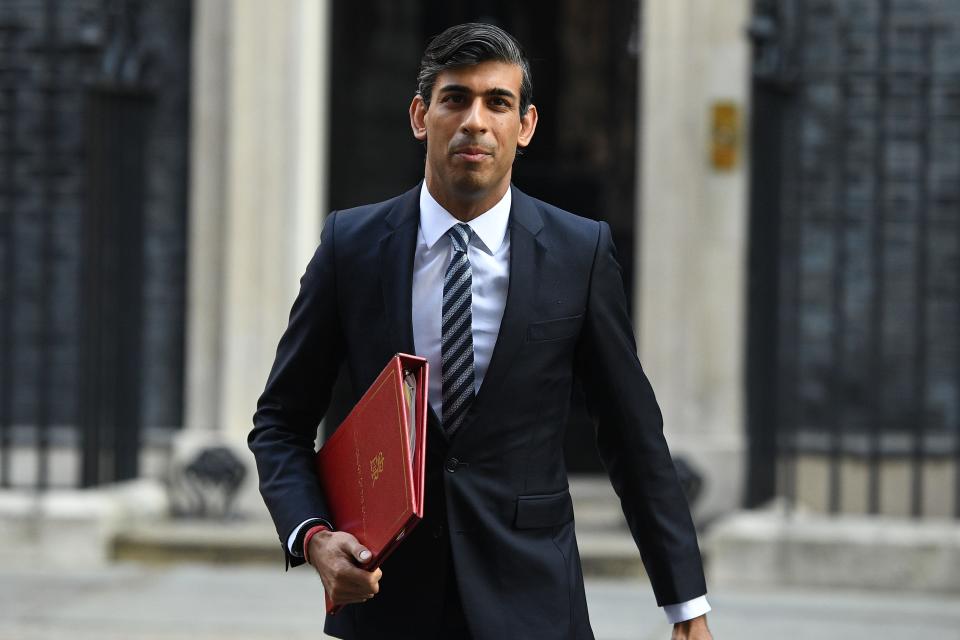Coronavirus: How can Rishi Sunak protect jobs when furlough scheme ends?

With new restrictions announced this week designed to slow a worrying rise in coronavirus cases, pressure is mounting on Rishi Sunak to introduce additional support for jobs and businesses.
Industry groups, unions, businesses and MPs have all warned that failing to extend or replace the furlough scheme in particular will lead to hundreds of thousands of people losing their jobs.
Now, with pubs and restaurants, which provide employment for large numbers of people, forced to close at 10pm and further restrictions considered possible if not likely, the chancellor is ready to act.
He is due to make a statement to the House of Commons on Thursday outlining plans to protect jobs.
But what options are being considered and what might they mean for workers and business owners?
Do nothing
Both Boris Johnson and Rishi Sunak have staunchly defended their position that companies have had tens of billions of pounds worth of support and a line must be drawn.
In the last few days, however, the rhetoric has notably softened, perhaps paving the way for an announcement of additional help.
Cuts to VAT and business rates, grants for some smaller firms, government-backed loans and help paying wages have all been welcomed by firms but many still won't survive the winter if the tap is turned off now while they are not able to trade freely.
There is a risk that much of that money already spent to keep people in their jobs would go to waste.
Under current plans, firms will get grants of £1,500 for workers they keep on until the end of January. For pubs, restaurants, theatres and others whose income has been decimated, it may still make financial sense to make staff redundant. Others may not have a choice as they will simply run out of cash.
The kick start scheme also promises to fund six-month placements with employers for young people.
There is a broad consensus that continuing on the present path will lead to a sharp rise in unemployment, deepening and extending the economic slump well into next year and beyond.
Extend business loan schemes
Four government-backed loan schemes for companies of various sizes have helped some 1.3 million businesses. The vast majority of these have received bounce back loans of up to £50,000.
Sunak was planning last week to extend these schemes until the end of November, according to a report in the Financial Times. No announcement has yet been made, prompting speculation that the government is changing its approach and looking at a more comprehensive support package.
Lots of companies have already obtained finance under the schemes and may not be able to obtain more. Therefore, extending the scheme on its own may not be particularly beneficial.
There is also a problem in store if large numbers of businesses are saddled with big debts as we come out of the crisis. Heavily indebted firms are less able to invest and grow. Some will become insolvent and fold, leaving the debts unpaid.
Extend the furlough scheme
Extending the Job Retention Scheme would be the simplest option, given that it's up and running and has operated smoothly despite huge demand.
Germany's equivalent scheme is set to run until the end of next year, providing certainty for companies and their employees.
But the UK government has repeatedly expressed concerns both about the cost of furlough (more than £40bn so far) and that it may keep people in jobs that have no viable future.
Business groups and some think tanks are asking for a targeted version of furlough that would pay the wages of workers in the hardest-hit sectors. That would cut down on costs and waste while still protecting lots of jobs, it is argued.
Deciding who would and would not be eligible is fraught with difficulty however, as the dividing lines between different sectors are often blurred.
The government knows about this kind of problem only too well from the angry backlash against its exclusion of more than a million people from its self-employed income support scheme.
Short-time working or wage subsidy
Perhaps the most promising option with the most potential to save jobs is a short-time working or wage subsidy scheme.
The Guardian reported on Tuesday that Sunak is considering proposals like the one made recently by the TUC to pay employers for part of their staff's wages.
Employees would work part time and train part-time. Companies would pay staff for the days they are at work with the government picking up the tab for the days when they are not.
It is hoped that this would prevent mass lay-offs, with companies then able to increase working hours as the economy picks up.
Two things are abundantly clear: there are hugely difficult decisions to be made, and very little time in which to make them.
Read more
The jobs crisis is the biggest economic challenge of our future
Furlough scheme paid out up to £3.5bn in error or to fraudsters, HMRC admits

 Yahoo News
Yahoo News 